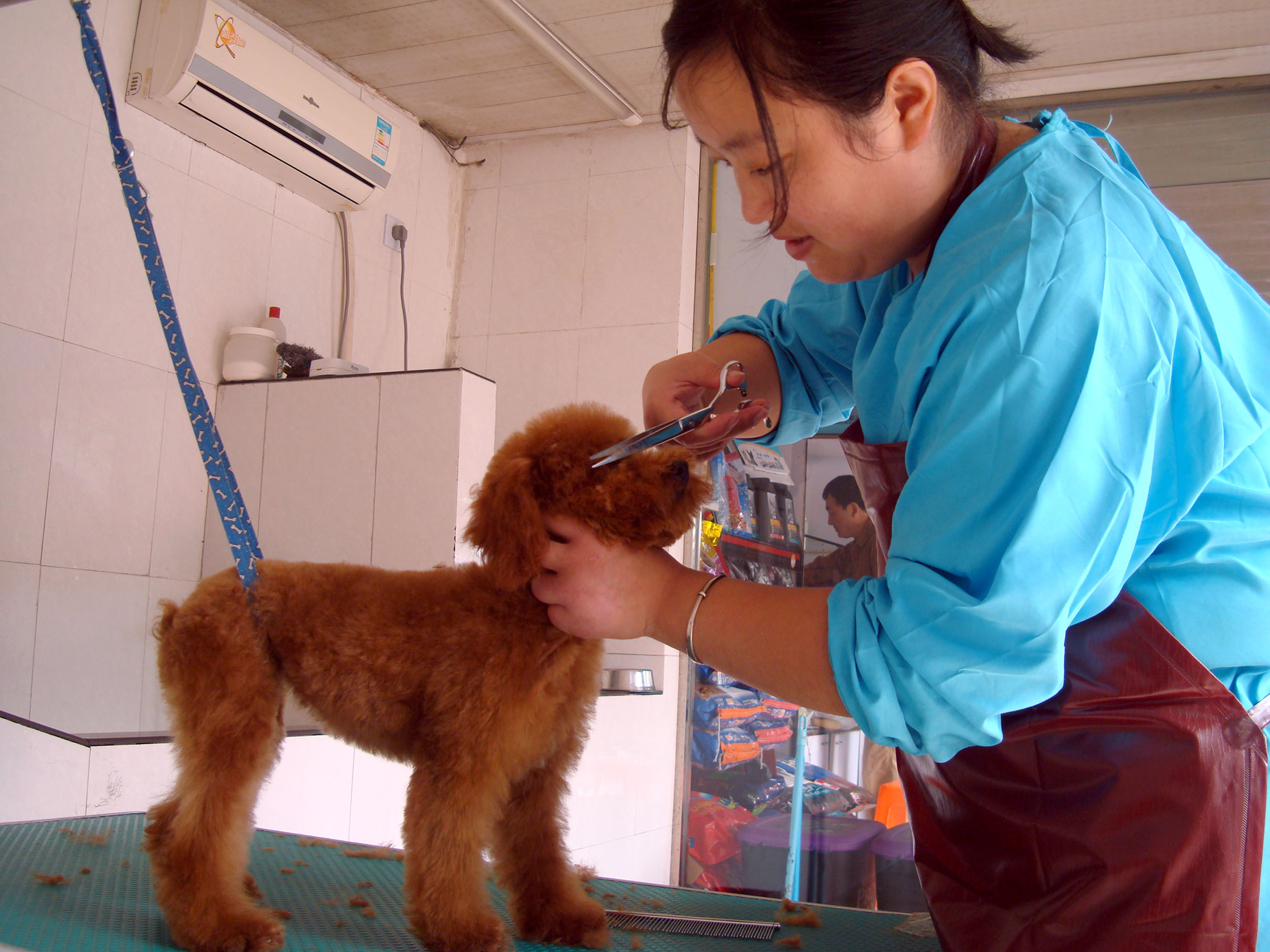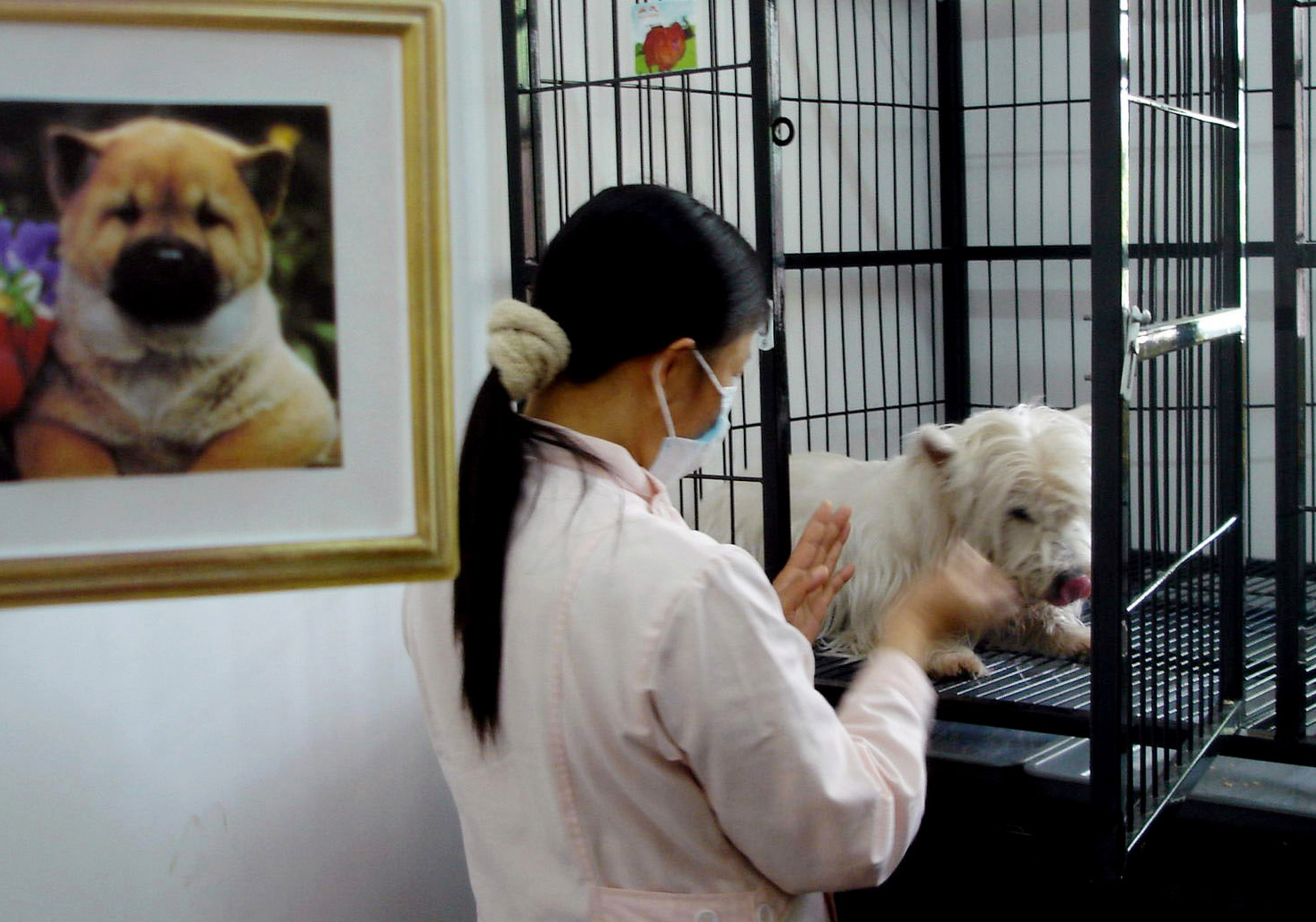
An employee cuts hair for a dog at a pet hotel in Suzhou, east China's Jiangsu Province. (Xinhua/Wang Jiankang)
HEFEI, Feb. 23 (Xinhua) -- This Spring Festival holiday has seen hundreds of millions of Chinese returning to their hometowns for family gatherings. But for many of China's animal lovers, this year they have found it especially hard to find temporary homes for their pets before embarking on their journeys.
As the country's most important holiday unleashed an enormous demand for pet boarding services, many pet owners in Chinese cities found the nearby pet hotels were either booked out or too expensive to afford.
"It's really difficult to find a home for my cats this year. The nearby pet hotels were fully booked, and I had to settle for one very far from home," said Xia Junyi, an owner of two cats in Hefei, capital of eastern China's Anhui Province.
She added that pet hotel charges also ticked up during the holiday, some of which increased by half.
Hu Xue, an owner of a small pet hotel in Hefei, said her hotel, which can accommodate up to 35 pets, was booked out weeks before the Spring Festival despite the rise in boarding prices.
"The charge for a pet per day has increased from 40 yuan (about 6 U.S. dollars) to 60 yuan, and we charge extra for larger pets," she said. "Even so, my hotel was packed with pets during the holiday."
The pets staying in Lu's hotel were fed, cleaned and walked regularly. Pet owners could make video calls to Lu to ensure their furry friends were taken good care of.

An employee of a pet hotel takes care of a dog in Suzhou, east China's Jiangsu Province. (Xinhua/Wang Jiankang)
The booming business of China's pet hotels is indicative of the country's burgeoning pet industry. According to a report published by goumin.com, an online pet forum, Chinese pet owners have reached 73.6 million last year, raising a total of 91.5 million dogs and cats, the majority of the pets.
The country's dog and cat owners spent over 5,000 yuan per pet in 2018, an increase of 15 percent from the previous year, the report said.
Luxury pet hotels and pet resorts have also sprouted up in Chinese cities, especially first-tier cities such as Beijing and Shanghai, catering to pet owners who are willing to spend big bucks on their pets.
These high-end pet hotels feature better facilities including air conditioners, air purifiers and around-the-clock surveillance cameras as well as various types of entertainment for pets such as movies and massages.
PET SITTER ALTERNATIVE
After failing to find pet shops or friends to take care of his cat before the Spring Festival, Wang Bo, who works for a company in eastern Zhejiang Province, turned to cat sitters for help.
He found a cat sitter on 58.com, a Craigslist-style classifieds website. The cat sitter, who charged 80 yuan for a day's job, would feed and clean his cat and send a video of the cat to him once a day.
"I'll be away for half a month. The pet hotels near my home were booked out, so this is my only choice," said Wang, who called himself a "maonu," or "cat slave."
"But this may not be the safest choice," he said. "I didn't sign any written contract with the cat sitter or ask to check his health certificate. In some sense, the health of my cat all depends on the cat sitter's sense of responsibility."
He added that most of his friends relied on the recommendations of other pet owners to find reliable pet sitters.
"Pet sitting is still an emerging industry in China and is in need of standardization," said Chen Hongguang, a law professor in Anhui University. "In order to avoid risks, pet owners should sign a contract with pet sitters beforehand." Enditem



